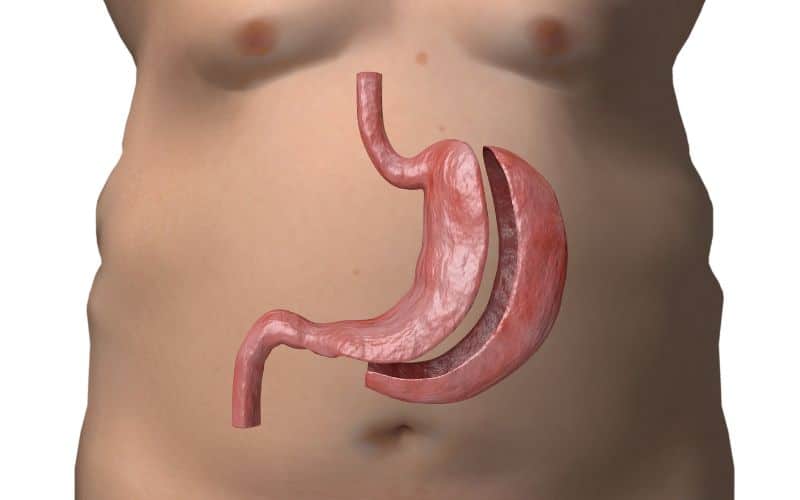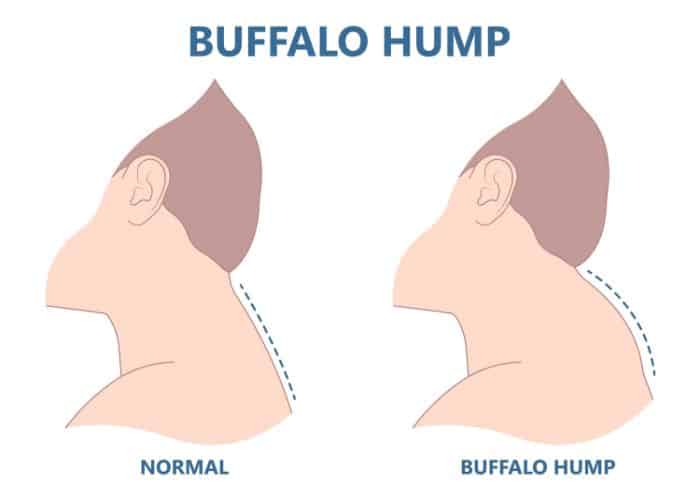Bariatric surgery is a weight loss procedure that is becoming increasingly popular. It is a surgical intervention that is performed on the stomach and/or intestines to help people lose weight. The surgery works by reducing the size of the stomach and/or rerouting the intestines to reduce the amount of food that can be consumed and absorbed.
One of the most common questions people have about bariatric surgery is how much weight they can expect to lose. While the amount of weight loss varies from person to person, studies have shown that on average, patients can expect to lose around 60-70% of their excess weight within the first year after surgery. It is important to note that bariatric surgery is not a quick fix for weight loss, and patients must commit to making significant lifestyle changes to achieve the best results.
It is also important to note that bariatric surgery is not suitable for everyone. Medical guidelines for weight-loss surgery are based on body mass index (BMI), and the surgery may be an option for an adult with a BMI of 40 or higher or for an adult who meets certain conditions. Before considering bariatric surgery, it is important to speak with a healthcare professional to determine if it is the right option for you.
Contents
Understanding Bariatric Surgery

Bariatric surgery is a type of weight-loss surgery that helps people who are severely obese to lose weight. This surgery is usually recommended for people who have a body mass index (BMI) of 40 or higher, or a BMI of 35 or higher with an obesity-related medical condition. Bariatric surgery can help people lose a significant amount of weight and improve their overall health.
Types of Bariatric Surgery
There are several types of bariatric surgery, including:
- Gastric bypass surgery: This is the most common type of bariatric surgery. It involves creating a small stomach pouch and rerouting the small intestine to this new pouch. This limits the amount of food you can eat and reduces the absorption of nutrients.
- Sleeve gastrectomy: This involves removing a large portion of the stomach, leaving a smaller stomach pouch. This limits the amount of food you can eat and reduces the production of hunger hormones.
- Adjustable gastric banding: This involves placing a band around the upper part of the stomach to create a small stomach pouch. The band can be adjusted to control the amount of food you can eat.
Procedure of Bariatric Surgery
Bariatric surgery is usually performed laparoscopically, which means that small incisions are made in the abdomen and a laparoscope (a small camera) is used to guide the surgery. The surgery is usually performed under general anesthesia and takes several hours to complete.
After the surgery, you will need to stay in the hospital for a few days to recover. You will be given pain medication and instructions on how to care for your incisions. You will also be given a special diet to follow to help your body heal and adjust to the new stomach size.
In conclusion, bariatric surgery is a type of weight-loss surgery that can help people who are severely obese to lose weight and improve their overall health. There are several types of bariatric surgery, including gastric bypass surgery, sleeve gastrectomy, and adjustable gastric banding. The surgery is usually performed laparoscopically and requires a hospital stay of a few days.
Weight Loss Expectations

Bariatric surgery is a weight loss option for people who have not been able to lose weight through diet and exercise alone. The amount of weight loss that can be expected after bariatric surgery depends on several factors, including the type of surgery, the patient's starting weight, and their commitment to making lifestyle changes after surgery.
On average, gastric bypass patients can expect to lose about 70% of their excess weight within the first two years after surgery. This means that if a patient has 100 pounds of excess weight, they can expect to lose around 70 pounds. However, it is important to note that weight loss can vary from person to person and that some patients may lose more or less weight than this average.
Gastric sleeve patients can also expect significant weight loss, with most patients losing an average of 2-4 pounds per week in the first 6 months to a year after surgery. This can result in a total weight loss of around 60-70% of excess weight within the first year.
It is important to note that weight loss after bariatric surgery is not immediate and requires patience and commitment to making lifestyle changes. Patients must follow a strict diet and exercise regimen to achieve the best results. Additionally, bariatric surgery is not a permanent solution, and patients must continue to make healthy lifestyle choices to maintain their weight loss and prevent weight regain.
In summary, bariatric surgery can result in significant weight loss for patients who have not been able to lose weight through traditional methods. The amount of weight loss that can be expected depends on several factors, including the type of surgery and the patient's commitment to making lifestyle changes. While weight loss can vary from person to person, gastric bypass and gastric sleeve patients can generally expect to lose a significant amount of excess weight within the first year after surgery.
Factors Influencing Weight Loss
Bariatric surgery is an effective tool for weight loss, but the amount of weight loss can vary depending on several factors. Here are some factors that can influence the amount of weight loss after bariatric surgery:
Pre-Surgery Weight
The amount of weight a person has to lose before surgery can affect the amount of weight they lose after surgery. People with a higher body mass index (BMI) tend to lose more weight after surgery than people with a lower BMI. For example, a person with a BMI of 50 may lose up to 70% of their excess weight after surgery, while a person with a BMI of 35 may lose up to 50% of their excess weight.
Surgery Type
The type of bariatric surgery can also affect the amount of weight loss. Gastric bypass surgery is one of the most common types of bariatric surgery and can result in significant weight loss. Patients who undergo gastric bypass surgery can lose up to 60-80% of their excess weight within the first year after surgery. Other types of bariatric surgery, such as gastric sleeve surgery and adjustable gastric banding, can also result in significant weight loss, but the amount of weight loss may not be as much as with gastric bypass surgery.
Post-Surgery Lifestyle
Following a healthy diet and regular exercise routine after surgery is crucial for long-term weight loss success. Patients who do not make lifestyle changes after surgery may not experience significant weight loss. It's important for patients to work with a registered dietitian to develop a healthy eating plan that meets their nutritional needs. Patients should also engage in regular physical activity to help maintain weight loss and improve overall health.
In conclusion, the amount of weight loss after bariatric surgery can vary depending on several factors, including pre-surgery weight, surgery type, and post-surgery lifestyle. Patients who make lifestyle changes and follow a healthy diet and exercise routine are more likely to experience significant weight loss after surgery.
Health Benefits and Risks

Potential Health Benefits
Bariatric surgery can offer significant health benefits for individuals who are severely obese and have struggled to lose weight through traditional methods. Some of the potential health benefits of weight loss surgery include:
- Significant weight loss: Patients can expect to lose a significant amount of weight following bariatric surgery. The amount of weight loss varies depending on the type of procedure, but patients can typically expect to lose 50 to 80 percent of their excess weight within the first year after surgery.
- Improved overall health: Bariatric surgery can help improve or resolve many obesity-related health conditions, including type 2 diabetes, high blood pressure, sleep apnea, and joint pain.
- Increased lifespan: Studies have shown that bariatric surgery can increase lifespan for severely obese individuals by reducing the risk of obesity-related diseases and conditions.
Possible Risks and Complications
While bariatric surgery can offer significant health benefits, it is not without risks. Some of the possible risks and complications of weight loss surgery include:
- Infection: As with any surgery, there is a risk of infection following bariatric surgery. Patients are typically given antibiotics to help prevent infection.
- Bleeding: There is a risk of bleeding during and after bariatric surgery. In some cases, additional surgery may be required to stop the bleeding.
- Blood clots: Blood clots can form in the legs or lungs following bariatric surgery. Patients are typically given blood thinners to help prevent blood clots.
- Nutritional deficiencies: Bariatric surgery can cause nutritional deficiencies, particularly in patients who do not follow their post-surgery dietary guidelines. Patients may need to take vitamin and mineral supplements to prevent deficiencies.
- Dumping syndrome: Some patients may experience dumping syndrome following bariatric surgery. This occurs when food moves too quickly through the stomach and into the small intestine, causing nausea, vomiting, and diarrhea.
It is important for patients to carefully consider the potential risks and benefits of bariatric surgery before deciding to undergo the procedure. Patients should also discuss their individual risks with their healthcare provider.
Maintaining Weight Loss
After undergoing bariatric surgery, it is important to maintain a healthy lifestyle to ensure long-term success. While the surgery can help with initial weight loss, it is up to the patient to make the necessary lifestyle changes to maintain their weight loss.
Diet and Nutrition
Following a healthy and balanced diet is crucial for maintaining weight loss after bariatric surgery. Patients should focus on consuming high-protein foods, such as lean meats, fish, and legumes, to promote muscle growth and repair. Additionally, it is important to limit intake of high-fat and high-sugar foods, as they can lead to weight regain.
Patients should also focus on portion control and eating slowly to allow the body to properly digest food. Eating small, frequent meals throughout the day can also help keep hunger at bay and prevent overeating. It is important to work with a registered dietitian to develop a personalized meal plan that meets individual nutritional needs.
Exercise and Physical Activity
Regular exercise is important for maintaining weight loss and improving overall health after bariatric surgery. Patients should aim to engage in at least 30 minutes of moderate-intensity exercise, such as brisk walking or cycling, on most days of the week.
Strength training exercises, such as lifting weights or using resistance bands, can also help build muscle and improve metabolism. It is important to consult with a healthcare provider before starting an exercise program to ensure safety and effectiveness.
In conclusion, maintaining weight loss after bariatric surgery requires a commitment to healthy lifestyle habits, including a balanced diet and regular exercise. Patients should work closely with their healthcare team to develop a personalized plan that meets their individual needs and goals.
Conclusion
Bariatric surgery is an effective option for patients who are struggling with obesity and have not been able to lose weight through traditional methods such as diet and exercise. The surgery can lead to significant weight loss, which can improve overall health and reduce the risk of developing obesity-related illnesses.
While the amount of weight loss varies from patient to patient, studies have shown that bariatric surgery can result in an average weight loss of 50-70% of excess body weight within the first two years after surgery. However, it is important to note that the success of the surgery depends on the patient's commitment to making lifestyle changes, such as following a healthy diet and engaging in regular physical activity.
It is also important to consider the potential risks and complications associated with bariatric surgery, such as infection, bleeding, and malnutrition. Patients should discuss these risks with their healthcare provider and carefully weigh the benefits and risks before deciding to undergo the surgery.
Overall, bariatric surgery is a viable option for individuals struggling with obesity who have not been able to achieve significant weight loss through traditional methods. It is important to approach the surgery with realistic expectations and a commitment to making lifestyle changes to ensure long-term success.






